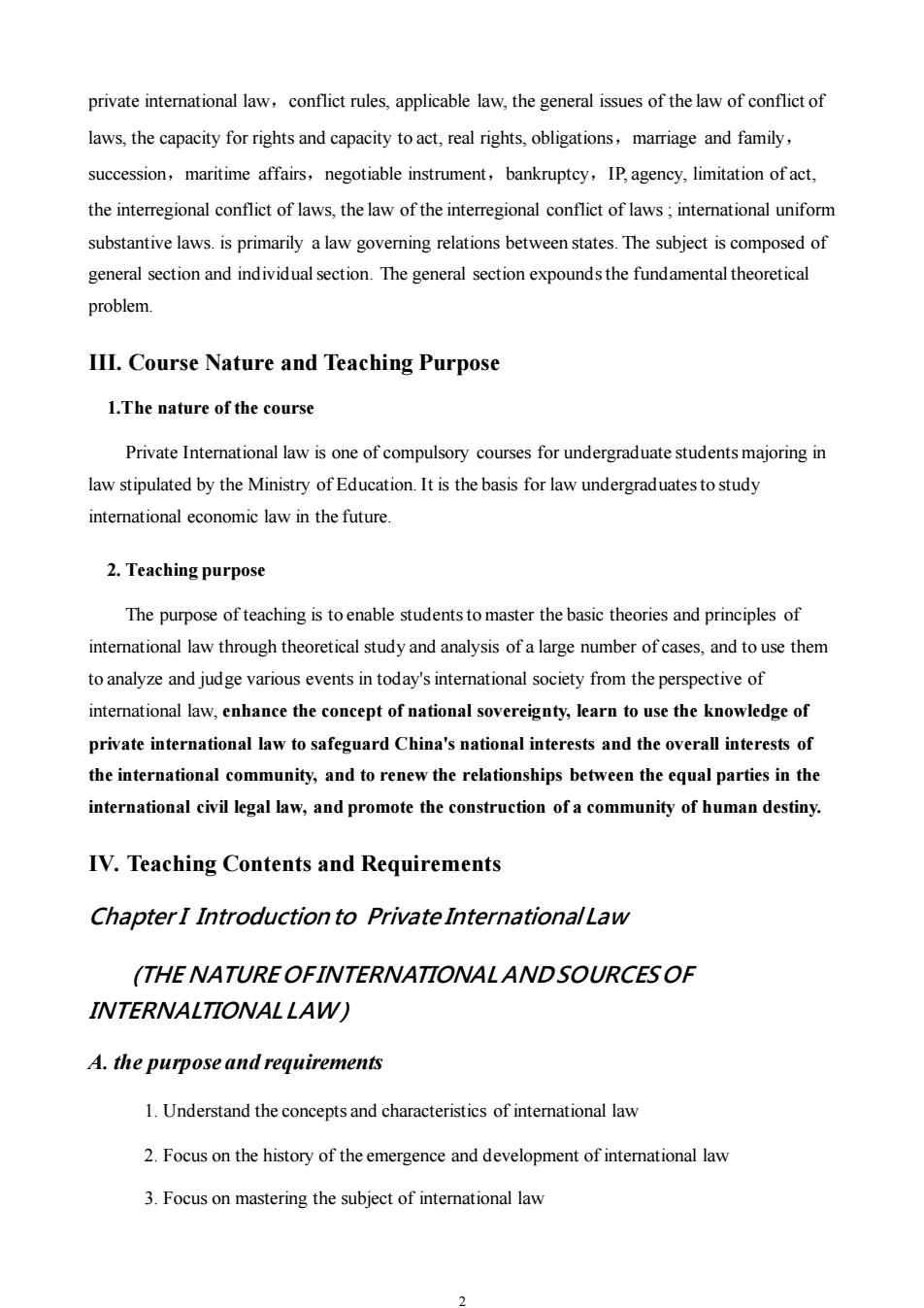正在加载图片...

private international law,conflict rules,applicable law,the general issues of the law of conflict of laws,the capacity for rights and capacity to act,real rights,obligations,marriage and family, succession,maritime affairs,negotiable instrument,bankruptcy,IPagency,limitation of act the interregional conflict of laws,the law of the interregional conflict of laws;international uniform substantive laws.is primarily a law governing relations between states.The subject is composed of general section and individual section.The general section expounds the fundamental theoretical problem III.Course Nature and Teaching Purpose 1.The nature of the course Private International law is one of compulsory courses for undergraduate students majoring in law stipulated by the Ministry of Education.It is the basis for law undergraduatestostudy international economic law in the future. 2.Teaching purpose The purpose of teaching is toenable studentstomaster the basic theories and principles of international law through theoretical study and analysis of a large number of cases,and to use them to analyze and judge various events in today's interational society from the perspective of international law,enhance the concept of national sovereignty,learn to use the knowledge of private international law to safeguard China's national interests and the overall interests of the international community,and to renew the relationships between the equal parties in the international civil legal law,and promote the construction of a community of human destiny. IV.Teaching Contents and Requirements ChapterI Introduction to Private InternationalLaw (THE NATURE OFINTERNATIONAL ANDSOURCESOF INTERNALTTONAL LAW) A.the purpose and requirements 1.Understand the concepts and characteristics of international law 2.Focus on the history of the emergence and development of international law 3.Focus on mastering the subject of international law 2 private international law,conflict rules, applicable law, the general issues of the law of conflict of laws, the capacity for rights and capacity to act, real rights, obligations,marriage and family, succession,maritime affairs,negotiable instrument,bankruptcy,IP, agency, limitation of act, the interregional conflict of laws, the law of the interregional conflict of laws ; international uniform substantive laws. is primarily a law governing relations between states. The subject is composed of general section and individual section. The general section expounds the fundamental theoretical problem. III. Course Nature and Teaching Purpose 1.The nature of the course Private International law is one of compulsory courses for undergraduate students majoring in law stipulated by the Ministry of Education. It is the basis for law undergraduates to study international economic law in the future. 2. Teaching purpose The purpose of teaching is to enable students to master the basic theories and principles of international law through theoretical study and analysis of a large number of cases, and to use them to analyze and judge various events in today's international society from the perspective of international law, enhance the concept of national sovereignty, learn to use the knowledge of private international law to safeguard China's national interests and the overall interests of the international community, and to renew the relationships between the equal parties in the international civil legal law, and promote the construction of a community of human destiny. IV. Teaching Contents and Requirements Chapter I Introduction to Private International Law (THE NATURE OF INTERNATIONAL AND SOURCES OF INTERNALTIONAL LAW ) A. the purpose and requirements 1. Understand the concepts and characteristics of international law 2. Focus on the history of the emergence and development of international law 3. Focus on mastering the subject of international law